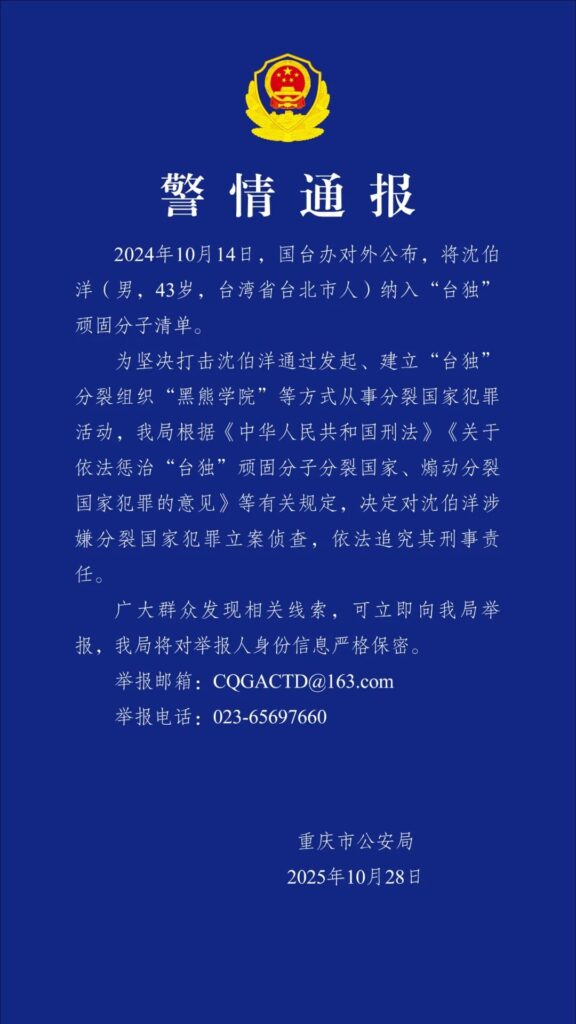
Former Global Times editor-in-chief Hu Xijin (胡锡进) marked China’s Journalists Day on Saturday with an unusually pointed critique of local authorities’ handling of news coverage, warning that official “blue background” statements are marginalizing journalists and weakening society’s resilience.
In a Weibo post on November 8, Hu — who served as the Communist Party tabloid’s editor for more than a decade — urged local governments to grant reporters greater access to breaking news events. “Currently, in some places where incidents occur, local governments completely prevent media involvement, allowing only official agencies to investigate and then issue a brief statement in white on a blue background, effectively marginalizing journalists,” Hu wrote. “This is highly unacceptable.”

Hu’s reference to “blue background” statements points to the tongbao (通报), official notices increasingly used by local police and government agencies to announce incidents without allowing the most basic reporting, to say nothing of more in-depth journalistic investigation. These terse, formulaic “white on blue” (蓝底白字) announcements have proliferated across Chinese social media in recent years, often serving as the sole official word on accidents, deaths, and other sensitive local news events.
They are often picked up by prominent news outlets such as Shanghai’s The Paper (澎湃) and The Beijing News (新京报). While they may be attractive sources of free and politically safe content, they have no independent verification and are often worthless as information.
Hu Xijin argued that such rigid controls “sacrifice the comprehensiveness and effectiveness of communication, and more importantly, undermine society’s long-term resilience and capacity to withstand pressure.” He called on authorities to show greater confidence and reduce restrictions on journalists.
In a perfect illustration of the exclusive, lazy use of the blue background notice that now typifies much reporting in China today, Hu’s old newspaper, the Global Times, reported late last week on an investigation by the Chongqing Public Security Bureau into Taiwanese lawyer and legislator Shen Bo-yang (沈伯洋), who is also known as Puma Shen. The Global Times story began with the blue notice, after which a summary repeated the same information, without any additional reporting or context.
True to form, the veteran Global Times editor took a bow to the Party and its press control principles even as he decried the damage done to journalism by the rising tide of blue notices — making clear that he was not talking on China’s Journalists Day about the type of journalism practiced in free societies. He emphasized that journalists must be able to play their proper role under CCP guidance. “The community of journalists is a supporting force for orderly social governance under Party leadership, an organic and important part of it,” Hu wrote. “Once this force is weakened, the harm to society’s long-term harmonious operation will definitely outweigh the benefits.”




















